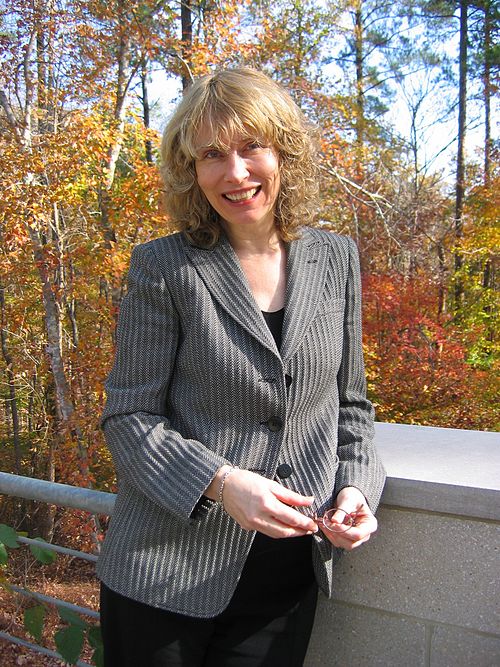Toril Moi | |
|---|---|
 Toril Moi in 2006 | |
| Born | (1953-11-28)28 November 1953 (age 71) |
| Occupation | literary critic,theorist |
| Subject | Feminist literary criticism,culture,theater |
| Website | |
| www | |
Toril Moi (born 28 November 1953 inFarsund,Norway) isJames B. Duke Professor of Literature and Romance Studies and Professor of English, Philosophy and Theatre Studies atDuke University. Moi is also the Director of the Center for Philosophy, Arts, and Literature at Duke. As an undergraduate, she attendedUniversity of Bergen, where she studied in the Literature Department.[1] Previously she held positions as a lecturer in French at theUniversity of Oxford and as Director of the Center for Feminist Research at theUniversity of Bergen, Norway. She lived inOxford, United Kingdom from 1979 to 1989. Moi lives in North Carolina. She works onfeminist theory and women's writing; on the intersections of literature, philosophy and aesthetics; and is fundamentally concerned with "finding ways of reading literature with philosophy and philosophy with literature without reducing the one to the other."
In 2002, she was awarded anhonorary degree, doctor philos. honoris causa, at theNorwegian University of Science and Technology.[2] In 1998, she won Duke's University Teacher of the Year Award and in 2008 she won the Dean's Award for Excellence in Mentoring of Graduate Students.[3] In 2014 she gave theBritish Academy's Master-Mind Lecture.[4]
She is a member of theNorwegian Academy of Science and Letters.[5]
Moi made her name withSexual/Textual Politics (1986), a survey ofsecond-wave feminism in which she contrasted the more empirical Anglo-American school of writings, such asgynocriticism, with the more theoretical French proponents ofEcriture feminine. While widely perceived at the time as an attack on the Anglo-American approach, Moi would later highlight her respect for their more politicized stance, as opposed to the idealism of the post-structuralists.[6] The book would also explore the concept ofandrogyny, along with its links to theanti-essentialism of the French school.[7]
Sexual/Textual Politics was followed by further explorations of contemporary French feminists such asJulia Kristeva, before Moi turned to her ground-breaking 1994 study ofSimone de Beauvoir.[8] Over the following decade, however, her focus of attention shifted toordinary language philosophy fromexistentialism.[9] Her most recent book,Revolution of the Ordinary: Literary Studies after Wittgenstein, Austin, and Cavell (2017), articulates an ordinary language philosophy-inspired approach to the task of literary criticism.[10] The book has been praised by critics such asRita Felski, R.M. Berry,Robert Pippin, and John Gibson. Writing in theLos Angeles Review of Books, V. Joshua Adams claims that Moi's book "makes a case for rejecting the approach to language that the 'theory project' produced," and that "beyond challenging the ways that literary studies thinks about language, Moi challenges the distinction between literature and life."[11]Revolution of the Ordinary also makes important interventions in the field ofpostcritique.[12]